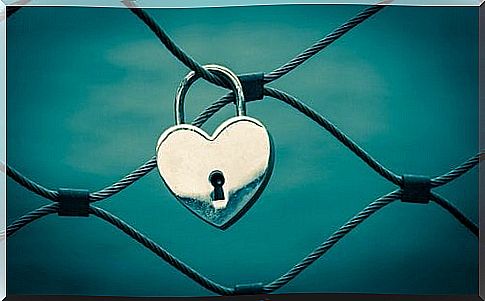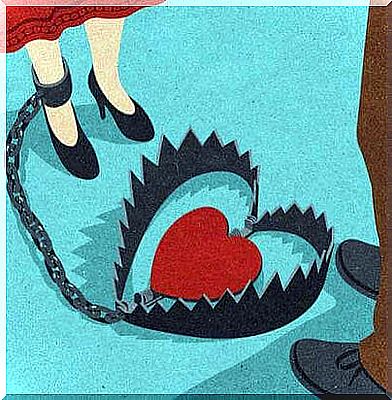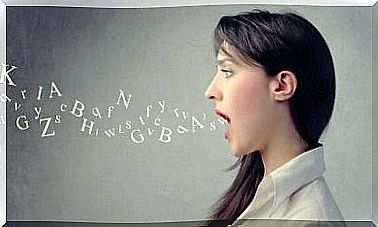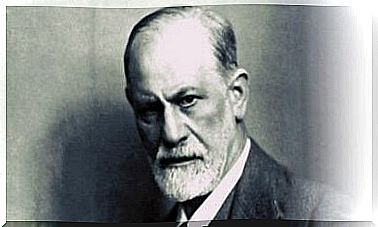Why Do We Immerse Ourselves In Emotional Dependence?

Every one of us, whether we are a man or a woman, young or old, can find ourselves in a relationship based on emotional dependence. Sometimes we think that this kind of thing can not happen to us. But it is worth remembering, the people in these conditions also did not think that they would never fall into that kind of bitter well.
Therefore, before we make our statements so radical, let’s ask ourselves something. What leads us to a relationship based on addiction? What do we feel in this type of relationship? How can we tell if our relationship is based on addiction or not?
On the one hand, if we are aware of what a dominant-dependent relationship is, we can more easily see if we are in one. If we have become part of a dysfunctional bond. This can give an extra strength to change the situation. We can also detect when others are in this type of problem as well. We can then try to warn them.
What leads us to a relationship based on emotional dependence?
We have all the expectations about ourselves and about our partner that we want to meet. These ideas are influenced by social and cultural beliefs. In our case , we have been taught that in order to be happy, we must have a romantic partner. We must also prioritize this partner over everything else (Castelló, 2006).
We are constantly seeking romantic relationships to make us whole so that they can fill our voids. We apply externally instead of looking inside. This makes it so that we are simply not enough in ourselves . We nurture our fears and look to others to cover them up.

On the other hand, the way we establish bonds of love is highly conditioned by how we have experienced attachment behavior in childhood (Guix, 2011). For example, if we were overprotected, we would feel insecure and seek out people who would protect us. On the other hand, if we develop few affective bonds or none at all, we will desperately seek someone to give us the love we need.
The type of relationship we see with our parents will also affect our romantic relationship. For example, if in childhood we saw a relationship based on dominance and emotional dependence, where love and abuse seemed to go hand in hand, we could establish the same type of relationship as adults. Especially since we know the first-hand mechanisms that maintain it.
Either way, the ideal would not be to search for our other half to make us whole. Because this simply does not exist. The truth is that each one of us is complete and whole. We are responsible for our own happiness. Furthermore, we should create our own criteria when it comes to choosing how we want to interact with our partner. We should not be influenced too much by any other pattern. It is important to be clear on what we want and do not want in a relationship.
What do we feel in this type of relationship?
We cannot be ourselves in a relationship based on emotional dependence. We feel limited and canceled, always concerned with reassuring and not disturbing our partners. Anxiety, mistrust, guilt and fear are all common emotions. These are “symptoms” that can be a product of low self-esteem. The individual may feel as if they are worthless or inferior to their partner. They need the other person excessively and feel scared or intolerant of loneliness.

Furthermore, when we are in a toxic relationship, we tend to accept more than we should. We endure unpleasant comments of devaluation, incriminating glances and silent treatment, mockery, invasion of intimacy, constant questions meant to control, lies… We endure verbal and sometimes physical aggression. Sometimes the idealization of one’s partner leads to excuses for their behavior. This can include fatigue, nerves, they do the best they can , etc. We often think that the person is going to change. Other times, it is what we see outside that makes us stay.
How do we know if our relationship is based on addiction or not?
It is not easy to see that the relationship is based on emotional dependence, but there are always indicators and signs that reflect this dysfunction. For example, our emotions are a clear sign. Our own feelings can show us that the relationship is not working well. In a healthy relationship, we should not be afraid or experience suffering.
When we are in a relationship, we can lose our perspective and only see the things we like about our partner. In fact, we become blind to the things we are not willing to see. Often we finally wake up when we have been on the wrong path for a long time (Grad, 2015) . Therefore, it is important to listen to and take into account the sincere advice of those who know us well. Still, do not obey their suggestions blindly and systematically either. As much as we may not like to hear others say, “they are not good for you, you have to go.” Than as much as we might think they just do not understand… They may be right.

Love is a free choice after all…
But why do we endure in a relationship that makes us suffer? Especially when it comes to a free choice that we made because we believe that our partner is an important source of trust and support, and someone that we considered unconditional. If this is not the case, it may be necessary to break this dynamic or reconsider the situation.
The truth is that we can have a healthy relationship, without emotional dependence or suffering, based on trust and respect. For this, it is important to remember that part of the responsibility is our own. We are not responsible for what the other person does, but we are responsible for what we do. If we change (take action or ask for help), the situation will change.







